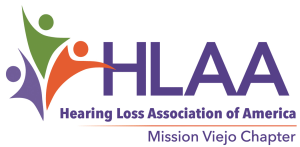Audiologist or Hearing Aid Dispenser?
What’s the difference between an audiologist
and a hearing instrument specialist?
Article from www.hearingtracker.com provides a good comparison.
One key difference between an audiologist and a “hearing aid specialist” is the minimum amount of education required. Audiologists must currently earn a professional degree (the Doctor of Audiology or Au.D.) which typically involves 4 years of academic and clinical training in audiology, following a traditional 4-year bachelor’s degree. By contrast, very few educational requirements need to be before a non-audiologist can sell hearing aids; in fact, in many states, the minimum requirement is a high school diploma, passing a licensing exam, and some form of brief apprenticeship with a licensed hearing aid specialist. Another major difference between an audiologist and a hearing aid specialist lies within their scopes of practice. Audiologists are licensed and trained to manage many areas of hearing health care including:
- Comprehensive audiological evaluations including tests of hearing sensitivity, speech understanding, middle ear function, inner ear, and auditory nerve function
- Diagnostic tests for balance/dizziness disorders
- Auditory processing evaluations for infants, children, and adults
- Design, selection, fitting and verification of hearing instruments and assistive listening devices
- Design, selection, installation, and monitoring of classroom amplification systems
- Rehabilitation therapy for hearing disorders which might include strategies to improve aided and unaided hearing, speech-reading (including lip- reading) and sign language
- Rehabilitation for auditory processing disorders
- Patient and family counseling about living with hearing loss
- Development of hearing conservation programs
- Research and development of new evaluation techniques and rehabilitation strategies
- Rehabilitation for vestibular (balance) disorders
- Cerumen (earwax) management
- Evaluation and management of tinnitus and hyperacusis
By contrast, the scope of practice for hearing aid specialists is very limited. They perform the following services:
- Basic hearing tests exclusively for the purpose of selling hearing aids to adults
- Hearing aid fitting and sales
Experience and attitude do count for something, however, so regardless of training or personality of the audiologist or dispenser counts a lot when it comes to a patient’s success with hearing aids. There are many dispensers with a vast amount of experience who can actually run circles around newly-graduated audiologists simply because of their time in the profession.
